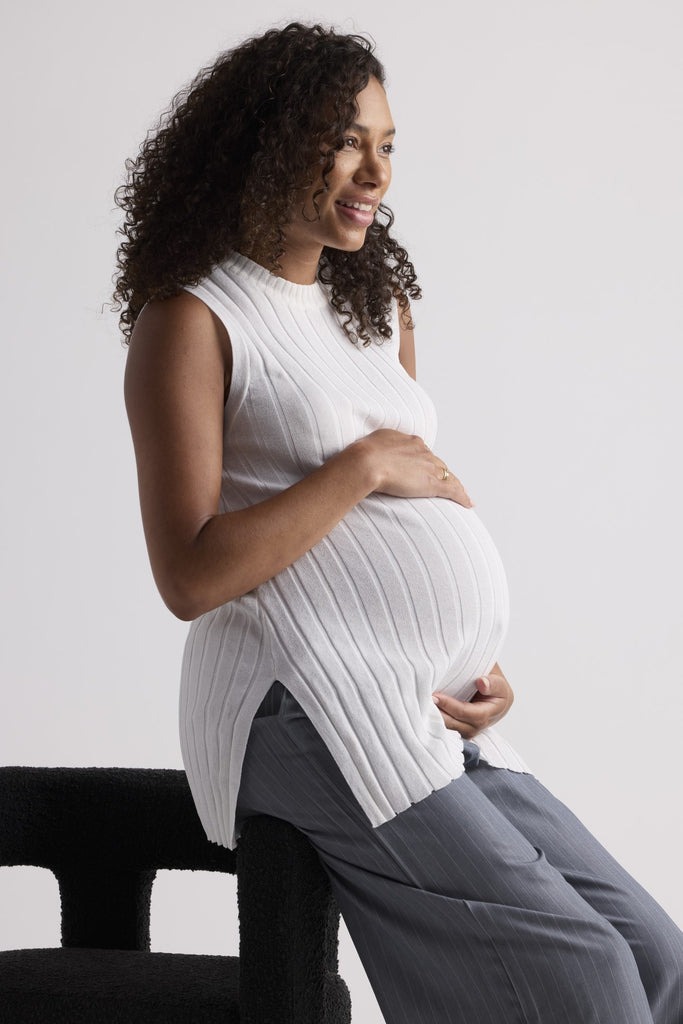
Everything You Need to Know About Constipation During Pregnancy
Constipation during pregnancy is a common phenomenon; every 2 out of 10 women suffer from constipation during their pregnancy. It's mostly due to the hormonal and lifestyle changes that women undergo.
If you are facing something similar, it is time to pay attention to your health more with each passing day. Once you get better, it is finally time to invest in some amazing maternity clothing including nursing dresses and trendy maternity dresses for yourself to upgrade your fashion style.
In this blog, we will discover how pregnancy impacts the health of the mother-to-be and the reasons for pregnancy-related constipation.
What is Constipation?
When you are suffering from constipation, your stools become hard and dry to the extent that they are painful or difficult to pass. You feel a need to visit the toilet more often, but still, you don't feel that your bowels have emptied. Constipation for most people is quite an unpleasant experience as it is irritating and frustrating at the same time.
When Does Constipation In Pregnancy Start?
For most of the women who are pregnant, constipation starts in the initial trimester, approximately after 8 weeks. This is due to the hormone progesterone that gradually increases. But every woman is unique and has a different physiology. Some women experience constipation in the initial months and some in the mid or third trimester.
Reasons Causing Pregnancy-Related Constipation.
No idea about the reasons for pregnancy-related constipation? Don't worry, let's discover:
Progesterone is the Main Culprit
During pregnancy, hormonal changes, usually the rapid like in progesterone, influence our body. Progesterone, often known as the "pregnancy hormone," plays a role but comes with a set of one such effect is its impact on the digestive system—acting almost like needles for the gut, and it's unbearable.
Progesterone slows down the digestive process, causing food to move more slowly through the intestines. This can feel like navigating a delicate balance: while progesterone is essential for a healthy pregnancy, its effects on the digestive system can lead to uncomfortable symptoms such as constipation. It's as if progesterone acts like needles for the gut, creating challenges that many pregnant women struggle with during their pregnancy months.
- Constipation during pregnancy causes:
- Slow digestion
- Increased water absorption
- Discomfort during bowel movement
- Piercing pain in stomach
Taking Medicines and Supplements Poses Side Effects
When it comes to managing constipation, it's important to recognize that medications and supplements can often be the culprits behind uncomfortable side effects. Medications commonly used to address issues like nausea, vomiting, heartburn, and severe pain can inadvertently lead to constipation. Similarly, certain supplements, such as iron, calcium, and various multivitamins, can also have this double-edged effect.
These medications and supplements, while designed to alleviate one set of symptoms, can introduce unwelcome challenges in the form of constipation. It's like dodging painful bullets while trying to address other health concerns.
Taking medications poses side effects like:
- Heartburn
- Nausea
- Vomiting
- Fetal development abnormalities
- Nervous system damage chances
Ditching the Fiber Is Not the Right Thing To Do
An average person should aim for a daily fiber intake of 25-30 grams to maintain a healthy digestive system. This recommendation becomes even more vital for pregnant women, as fiber plays a crucial role in alleviating constipation—a common concern during pregnancy.
Beyond just relieving constipation, fiber offers a host of additional benefits. A shortage of fiber in the diet can lead to various issues, including digestive problems, difficulties with weight management, fluctuations in blood sugar levels, and potential impacts on heart health.
Therefore, rather than ditching fiber from your diet, it's essential to prioritize incorporating fiber-rich foods to ensure optimal health and well-being, particularly during pregnancy. From fruits and vegetables to whole grains and legumes, there are plenty of delicious and nutritious sources of fiber to choose from, helping to support a healthy pregnancy and overall digestive wellness.
Ditching fiber can lead to:
- Imbalance blood sugar levels
- Problems with heart health
- Difficulties with weight management
- Potentially bad heart health
- Increased inflammation
Wrapping Up
Dealing with constipation during pregnancy can be incredibly frustrating. However, making necessary adjustments to your diet and lifestyle can significantly alleviate this discomfort. Ensuring that your food choices are rich in fluids and fiber is crucial, as constipation often stems from dryness in the digestive system. Aim to incorporate plenty of fiber-rich foods into your meals and make exercise a daily habit to promote regular bowel movements.
While mood swings and other pregnancy-related challenges may tempt you to abandon healthy habits, it's essential to remain disciplined and prioritize your well-being.





